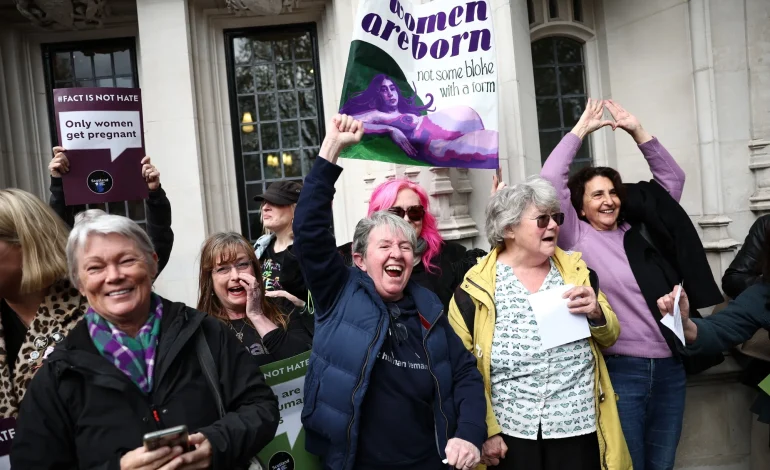In a landmark ruling with potentially wide-ranging implications for sex-based rights, the UK Supreme Court has unanimously ruled that the terms “woman” and “sex” as defined in the Equality Act 2010 refer to biological women and biological sex, Bloomberg reports.
The decision comes after a legal challenge brought by the campaign group For Women Scotland (FWS) regarding the interpretation of “woman” in Scottish legislation aiming for 50% female representation on public boards. The heart of the dispute was whether individuals with a Gender Recognition Certificate (GRC) recognizing their gender as female should be treated as women under the Equality Act.
FWS argued that failing to tie the definition of “sex” to its “ordinary meaning” could have significant consequences for legally protected sex-based rights, as well as “everyday single-sex services” such as restrooms and hospital wards.
At a Supreme Court hearing in November, Scottish Government lawyers argued that individuals with a GRC are “recognized in law” as having changed sex.
However, Lord Hodge, sitting with other justices, declared that the “central question” was the definition of “woman” and “sex” within the Equality Act 2010. He then clarified that these terms specifically refer to “biological woman” and “biological sex.”
Aidan O’Neill KC, representing FWS, had argued that the Scottish ministers’ position, which equated “sex, man, and woman” in the Equality Act with “certificated sex” (sex on a person’s birth certificate, even if amended by a GRC), was fundamentally incorrect.
Ruth Crawford KC, representing the Scottish Government, contended that individuals who become women “in consequence of a GRC” are entitled to the same protections as those recorded as women at birth. She warned that a successful challenge by FWS would effectively mean trans women with GRCs would “remain men until death for the purposes of the Equality Act.”
The court was also informed that, since the Gender Recognition Act passed in 2004, 8,464 people in the UK have obtained a GRC.
This case has a complex history. In 2022, FWS successfully challenged the Gender Representation on Public Boards (Scotland) Act 2018, arguing its inclusion of trans women in the definition of “women” was unlawful. The Court of Session agreed, ruling the Act exceeded the Scottish Parliament’s legal authority.
Following that challenge, the Scottish Government withdrew the controversial definition from the Act and issued revised statutory guidance. This guidance stated that the definition of “woman” in the 2018 Act aligned with the Equality Act 2010 and that a person with a GRC identifying them as female had the sex of a woman.
FWS subsequently challenged this revised guidance, claiming the Government was overstepping its authority by effectively redefining “woman” and that “sex” under the Equality Act referred to its biological meaning. Today’s Supreme Court ruling has validated their position.










The latest news in your social feeds
Subscribe to our social media platforms to stay tuned